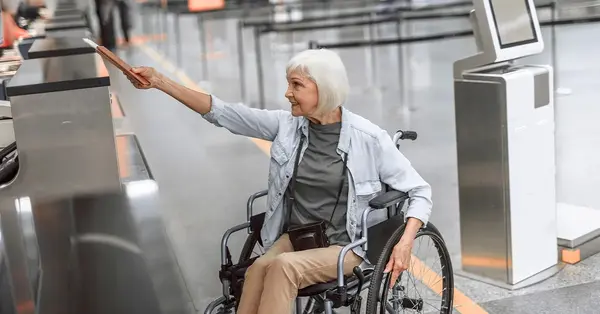You are viewing 1 of your 2 free articles
Part of strict new EU entry rules delayed
The European Union has reportedly delayed part of plans to tighten entry rules.
The introduction of a new European Travel Information and Authorisation System (Etias) from May 2023 has been put back until November.
Britons will be required to apply online for an Etias at a cost of €7 and last for two years.
It will be similar to the Esta visa waiver scheme, which tourists must have to enter the US.
Besart Bajrami, founder of SchengenVisaInfo.com, said: “Having an Etias means that Britons will be able to skip some of the checks they undergo now, as all their information will be available in their Etias. Border guards won’t even have to ask the questions that they ask now.”
But an automated Entry/Exit System (EES), which will require all non-EU arrivals to have four fingerprints scanned and a photograph taken, is still due to come into force in May 2023.
Passengers’ biometric data will be captured on their first entry to the bloc after the system is introduced. It will also register the name, travel documents and date of place of entry and exit.
The EES system will replace stamping of British passports when entering the EU.
Since Brexit, UK citizens without residency rights in the EU must have their passports stamped on entering or leaving the bloc.
“[Stamping] is time-consuming, does not provide reliable data on border crossings and does not allow the detection of overstayers or address cases of loss or destruction of travel documents,” a commission spokesperson told the i newspaper.
But there have been calls for the EES system to also be delayed.
Under French laws, the information must be gathered in the presence of a border official and cannot be subcontracted.
While this is thought to be a relatively easy process at airports, there are concerns that it poses challenges at ferry ports and the Eurotunnel where the vast majority of passengers arrive by car.
John Keefe, the director of public affairs for Getlink, which operates Eurotunnel between Folkestone and Calais, said the company is urging the EU to delay the introduction of the system until after next summer.
He told The Times the company is also lobbying for the system to be introduced in a staggered manner with frequent passengers enrolled first.
“We are exploring all options,” he said. “The issue is that the checks have to be done by a French border official and it cannot be subcontracted.
“Under the current plans everyone will have to get out of their car to be processed, which comes with the added risk of people walking around in lines of live traffic.”
Keefe said that on a peak summer’s day the Eurotunnel handles 600 cars an hour, carrying between 2,400 and 2,500 passengers.
Gareth Williams, strategy director of Eurostar, also warned of issues because of an “extreme space challenge” in London.
He said he didn’t “currently see a practical solution”, adding that St Pancras station would need more than 30 kiosks and an additional area equivalent in size to the entire current check-in zone.


















